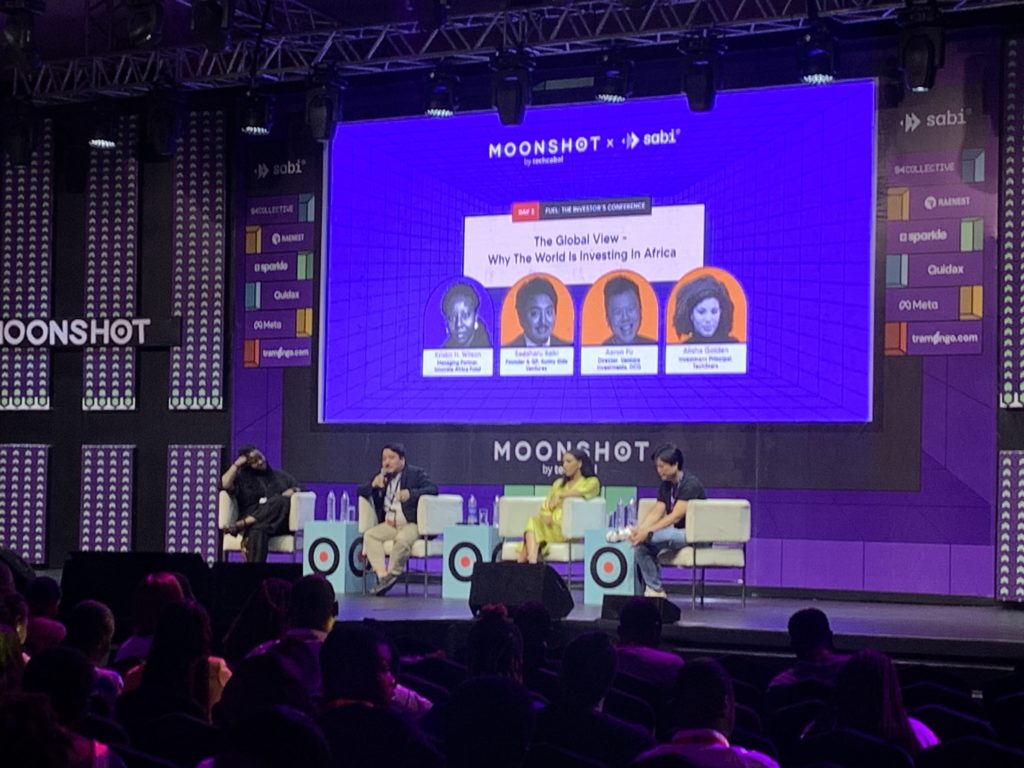
Source: Tech Cabal
The recent Moonshot by TechCabal conference, held on Thursday, shed light on a burning question in the African tech scene: Can homegrown startups truly go global? The resounding answer from venture capitalists and industry experts is a definitive yes – but with some crucial caveats.
Breaking Boundaries: The New African Startup Narrative
Gone are the days when African startups were content with regional dominance. We’re witnessing the rise of tech titans like TymeBank, Flutterwave, and Moove, who are boldly venturing into markets from Southeast Asia to North America. This shift signals a new era of African innovation – one that’s ready to take on the world stage.
The Financial Backbone: More Than Just Capital
At the heart of this global expansion lies a critical need: robust financial backing. But we’re not just talking about any investment. The buzzword at Moonshot was “patient capital” – long-term funding that believes in the vision of these startups and supports them through the ups and downs of international expansion.
Sadaharu Saiki, founder and GP at Sunny Side Ventures, emphasized at the conference, “What works in African markets might need significant tweaking to work in markets like LatAm and Southeast Asia.” This insight underscores the need for investors who understand that global success doesn’t happen overnight.
Partnerships: The Secret Sauce of Global Success
Money alone won’t guarantee triumph in foreign markets. The Moonshot conference highlighted the power of strategic partnerships. Aaron Fu, director of venture investments at DCG, offered this golden nugget: “There will always be someone who knows the market more than you. Leverage that knowledge through well-thought partnerships.”
These partnerships serve as local guides, providing invaluable insights into consumer behavior, regulatory landscapes, and competitive dynamics. For instance, when TymeBank expanded into Southeast Asia, they didn’t go in blind – they sought out local partners to navigate the nuances of each new market.
Bridging the Knowledge Gap
One of the biggest takeaways from Moonshot was the importance of market knowledge. African startups venturing globally need to do more than basic market research. They need a deep, nuanced understanding of cultural norms, consumer preferences, and local business practices.
To bridge this gap, startups are encouraged to:
1. Implement immersion programs
2. Build advisory boards with regional expertise
3. Hire local talent
4. Collaborate with local research institutions
The Unique Edge of African Innovation
As African startups set their sights on global markets, they bring with them a unique competitive advantage. Many of these companies have honed their skills in challenging environments, developing innovative solutions with limited resources. This scrappy, resourceful approach can be a significant asset in new markets.
Navigating Regulatory Challenges
The Moonshot conference didn’t shy away from discussing the hurdles of global expansion. Regulatory compliance emerged as a significant challenge, with each new market presenting its own set of rules and requirements. Strong local partnerships and robust legal teams were cited as crucial for navigating these complex waters.
As the Moonshot conference wrapped up, the message was clear: The future of African startups is increasingly global. The continent is no longer just absorbing innovation; it’s becoming a major exporter of groundbreaking ideas and solutions.
For entrepreneurs eyeing this global path, the takeaway from Moonshot was clear: Think big, but act strategically. Build strong foundations at home, seek patient capital, forge meaningful partnerships, and never stop learning about your target markets.














 and then
and then